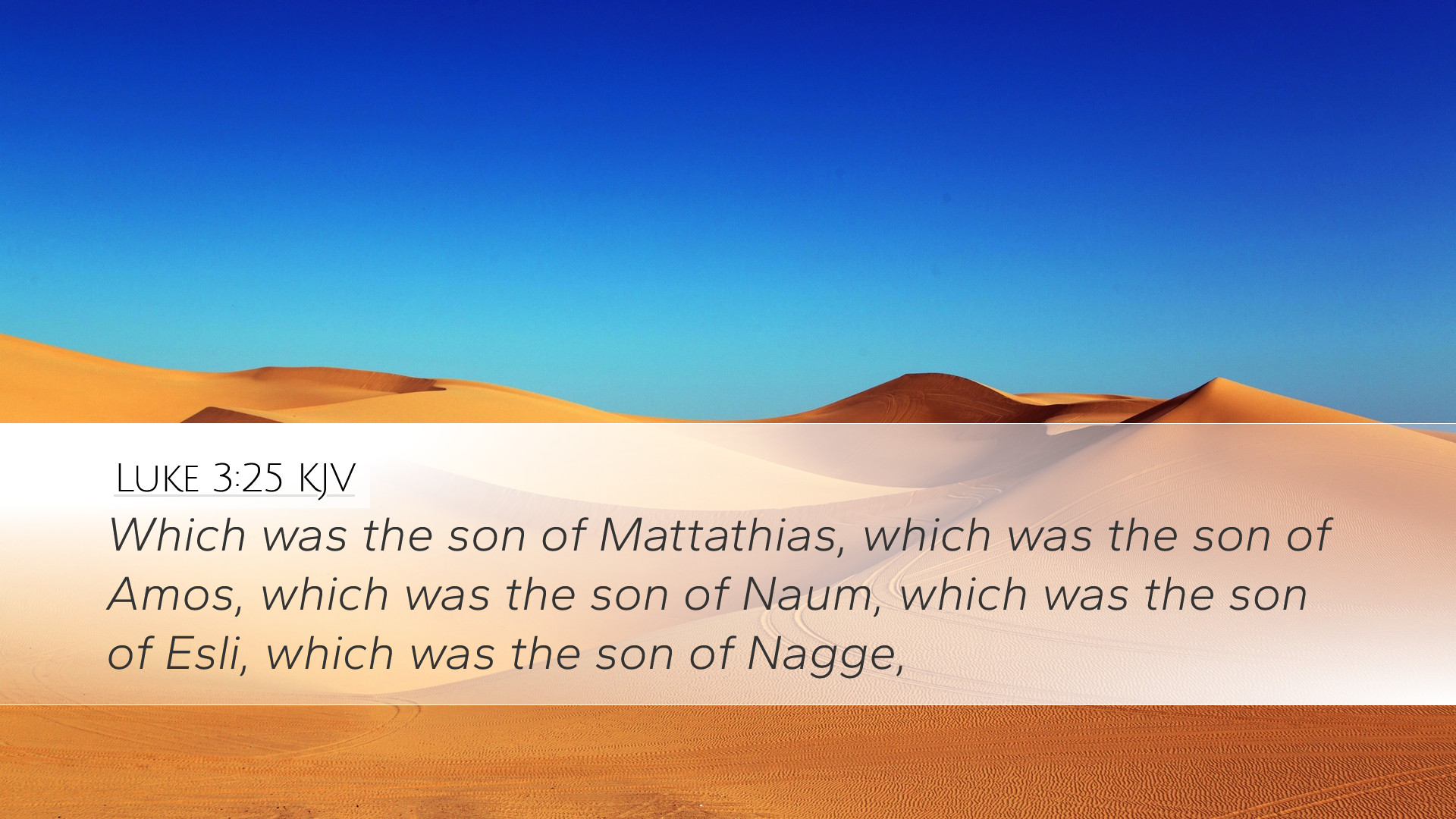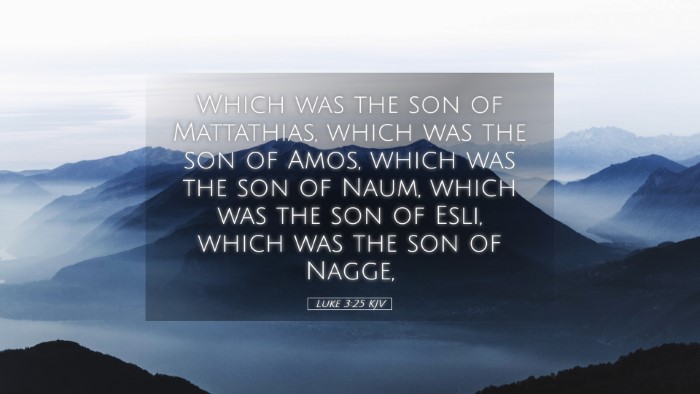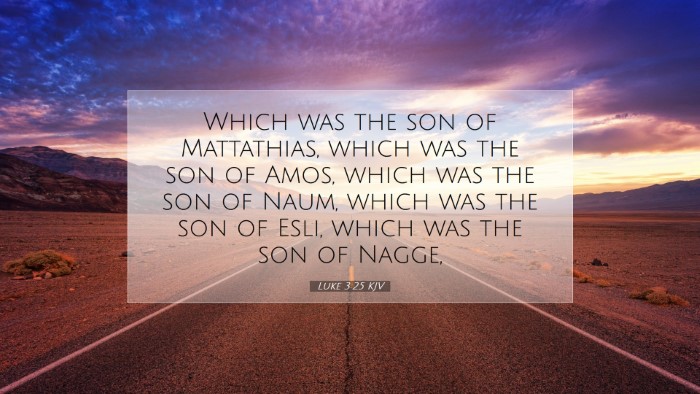Commentary on Luke 3:25
Verse: "Which was the son of Mattathias, which was the son of Amos, which was the son of Nahum, which was the son of Esli, which was the son of Naggai."
Luke 3:25 is a part of the genealogy of Jesus Christ, presenting a crucial link in tracing the lineage of the Savior. In this verse, we encounter several names that contribute to the rich tapestry of Jesus' ancestry. Throughout history and Biblical scholarship, these genealogies have served as more than mere lists of names; they encapsulate theological truths, providential history, and cultural significance.
Understanding the Context
This verse appears in the genealogy section of the Gospel of Luke, which differs from Matthew's account in both structure and emphasis. While Matthew focuses on demonstrating Jesus' royal lineage through David, Luke's genealogy highlights Jesus' connection to all humanity by tracing His lineage back to Adam. This inclusion signifies the universality of Christ's mission.
Theological Significance
The list of names in Luke 3:25 showcases God's faithfulness through generations. Each name is a testament to divine involvement in human history. The mention of Mattathias, Amos, Nahum, Esli, and Naggai reflects the ultimate fulfillment of God's covenantal promises to Israel and foreshadows the broader inclusion of Gentiles into the family of God.
Insights from Public Domain Commentaries
Matthew Henry Commentary
Matthew Henry notes that lists of names, while they may seem tedious, are significant in God's unfolding plan. He emphasizes that genealogy provides a clear line through which the Messiah would come and how God preserved His chosen people. Each name in this lineage is divinely appointed, reflecting an aspect of God's providential care.
Albert Barnes' Notes on the Bible
Albert Barnes elaborates on the name "Mattathias," indicating its meaning as "gift of the Lord." This highlights the theme of God's grace throughout the genealogical line, suggesting that every generation is a divine gift leading to the birth of Christ. The names that follow represent various periods of Israel's history, reassuring readers of God's sovereign hand at work despite the ups and downs of human fate.
Adam Clarke's Commentary
Adam Clarke provides historical insights into the significance of each name, noting particularly the obscurity of some individuals in the Old Testament records. He points out that these lesser-known figures serve to remind us that God uses ordinary people in His redemptive plan. Clarke emphasizes that God's grace extends to all, regardless of recognition, thus reinforcing the inclusivity of the Gospel message.
Practical Implications
For modern pastors, students, and theologians, Luke 3:25 presents several applicative truths:
- The Faithfulness of God: Each name in the genealogy reflects God's unwavering promise. In periods of uncertainty, believers can trust that God is faithful to His Word and that His plans are accomplished through history.
- The Inclusivity of the Gospel: The diverse line of Jesus emphasizes that salvation is available to everyone. Pastors can highlight this in their teachings, ensuring that congregations understand the breadth of God's grace.
- The Value of Every Individual: Recognizing that even those unnamed in scripture played a role in God’s plan encourages believers to appreciate their place in God’s story, regardless of their visible stature or recognition.
Concluding Thoughts
Luke 3:25 offers more than a genealogical reference; it invites deeper reflection on the character and purpose of God throughout history. As we consider the names of Mattathias, Amos, Nahum, Esli, and Naggai, we are reminded of the divine orchestration of events leading to Jesus’ incarnation. The insights from several commentaries underline the theological richness encapsulated in these few words, paving the way for an appreciation of both God's sovereignty and grace.
In teaching or studying this aspect of Scripture, one must recognize the potential impact of these names, not only in understanding the lineage of Christ but in grasping our place in the continuum of God’s redemptive work through time.


